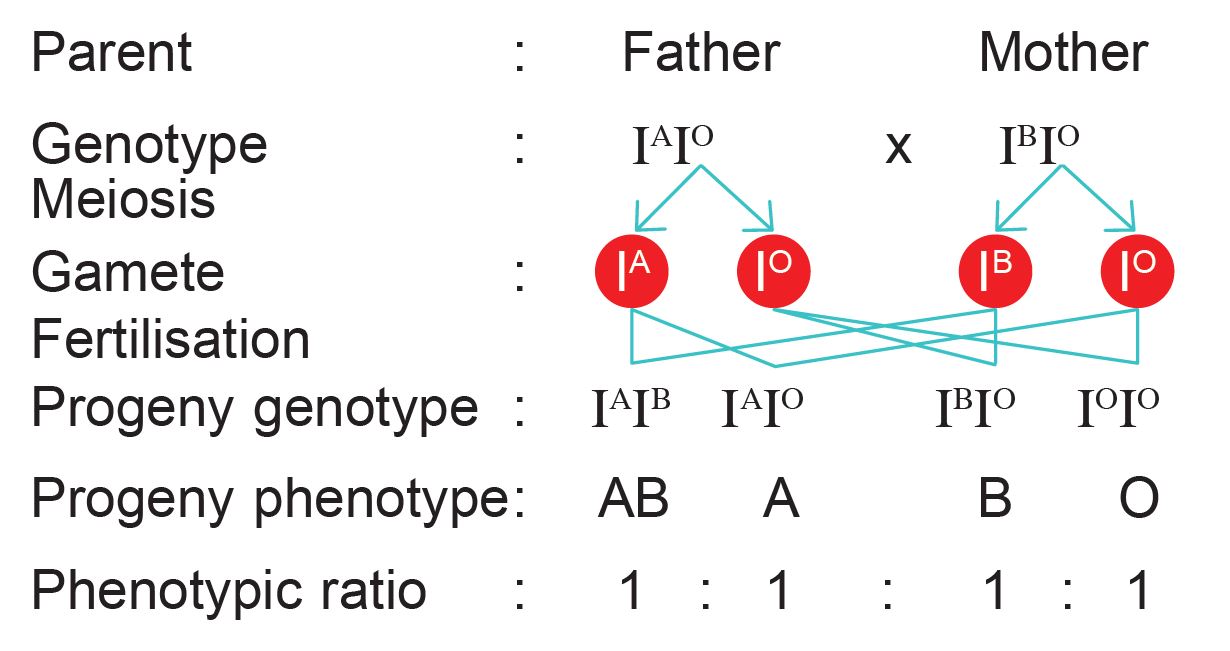Question 1:
A woman has heterozygous B blood group and a man has heterozygous A blood group. If the couple has an unidentical twins, what are the chances of both children having A blood group? Explain the inheritance of blood group of this family by using a schematic diagram using appropriate symbols.
A woman has heterozygous B blood group and a man has heterozygous A blood group. If the couple has an unidentical twins, what are the chances of both children having A blood group? Explain the inheritance of blood group of this family by using a schematic diagram using appropriate symbols.
Answer:
The probability of one unidentical twin with A blood group is 1/4.
Therefore, the probability of both unidentical twins with A blood group is 1/4 × 1/4 = 1/16
Question 2:
A woman who is heterozygous for haemophilia married a normal man. What are the chances of the couple having a haemophilic son?
A woman who is heterozygous for haemophilia married a normal man. What are the chances of the couple having a haemophilic son?
Answer:
In each birth, the probability to get a boy is 1/2.
Therefore, the probability to get a haemophilic boy = 1/2 × 1/2 = 1/4
Question 3:
A man who is homozygous for the ability to roll his tongue married a woman who is heterozygous for tongue rolling. What are the implications of their mating?
A man who is homozygous for the ability to roll his tongue married a woman who is heterozygous for tongue rolling. What are the implications of their mating?
Answer:
All children can roll tongue, 50% are homozygotes whereas another 50% are heterozygotes.